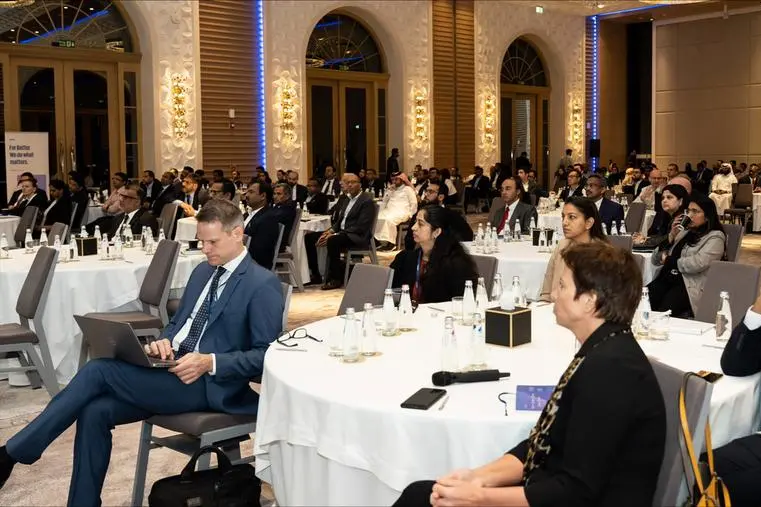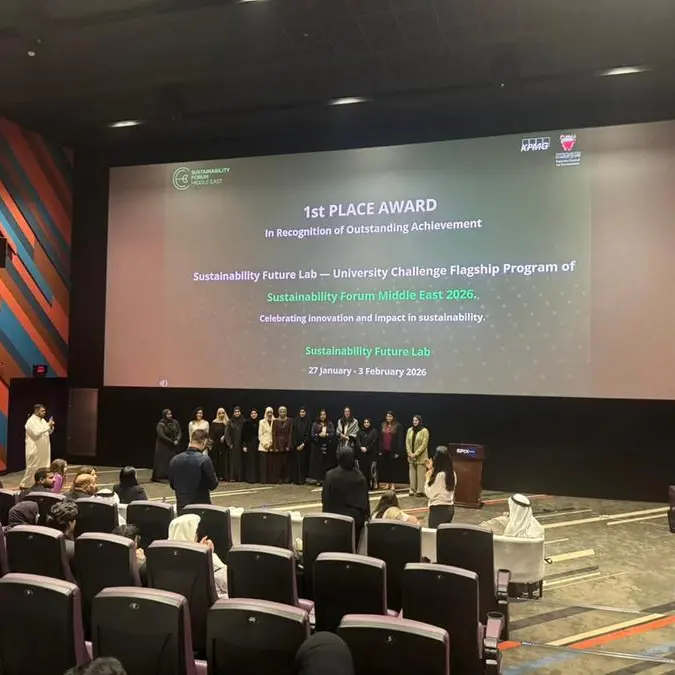PHOTO
Doha – Qatar: The Annual Tax summit, held earlier this week at the Le Royal Meridien Hotel, welcomed more than 200 business leaders and industry specialists, providing insight on the latest tax developments, locally and regionally, as well as the recent changes in the international tax landscape (i.e., global minimum CIT of 15%) and how these latter can affect businesses in Qatar.
The summit was led by KPMG tax experts and followed by a Q&A session, during which many of the guests’ questions were answered by the tax experts.
Barbara Henzen, Partner and Head of Tax at KPMG in Qatar started the conference with a general introduction to the rapidly evolving tax landscape in Qatar and in the GCC region. Barbara also highlighted the undeniable importance of businesses fulfilling their tax compliance requirements in an accurate and timely manner, especially in the context of Qatar’s firm commitment to combat tax evasion and comply with the international tax rules. Haythem Zayed, Tax Partner at KPMG in Qatar, enlightened the audience on some major changes in the tax Law, and mainly related to the broadening of the scope of income subject to corporate income tax, to include some additional sources of income derived from abroad.
Priyanka Jaiswal, Associate Tax Director at KPMG, highlighted the introduction of a new tax relief mechanism, under which companies in Qatar can now deduct the amount of foreign taxes suffered in connection with an income taxable in the State of Qatar. She also outlined the recent change in the Permanent Establishment definition, and how this may affect the tax status of certain entities in Qatar.
Imran Ayub, Tax Director at KPMG, explained some changes in the tax residency criteria for individuals and legal persons. Imran also stressed the importance of complying with the Economic Substance Regulations (“ESR”) and the introduction of a significant penalty of 15% of net income for in-scope entities who do not fulfill said ESR’ requirements. Uma Patankar and Damir Milanko, Transfer Pricing specialists at KPMG, stressed the importance for companies to document their various related party transactions, and their ability to demonstrate that the pricing applied on such transactions is compliant with the OECD’s arm’s length principle.
Nurlan Sadraddinzade, Indirect Tax Manager at KPMG, gave a presentation on the Value Added Tax in the region and shared some valuable lessons learned from other GCC countries, to ensure a successful implementation of the VAT by companies in Qatar.
The last session of the presentation was dedicated to the international tax changes, specifically the “Pillar Two GloBE rules” (i.e., global minimum effective CIT of 15%). Anand Krishnan, Associate Tax Director, and Claus Jochimsen, Partner of International Tax at KPMG Germany, enlightened the public on the potential in-scope entities that will be affected by said changes in Qatar, method of calculation of the “excess profits” and the “Top-up Tax”, etc.
-Ends-
For media queries, please contact:
Huda Ibrahim, Marketing and Communications Manager
E: hudai@kpmg.com
About KPMG in Qatar
©2023 KPMG LLC, a limited liability company registered with Qatar Financial Centre Authority (QFCA), State of Qatar and a member firm of the KPMG global organization of independent member firms affiliated with KPMG International Limited, a private English company limited by guarantee. All rights reserved.
KPMG is a global organization of independent professional services firms providing Audit, Tax and Advisory services. KPMG is the brand under which the member firms of KPMG International Limited (“KPMG International”) operate and provide professional services. “KPMG” is used to refer to individual member firms within the KPMG organization or to one or more member firms collectively.
KPMG firms operate in 143 countries and territories with more than 265,000 partners and employees working in member firms around the world. Each KPMG firm is a legally distinct and separate entity and describes itself as such. Each KPMG member firm is responsible for its own obligations and liabilities.
KPMG International Limited is a private English company limited by guarantee. KPMG International Limited and its related entities do not provide services to clients.
For more detail about our structure, please visit kpmg.com/governance.




















